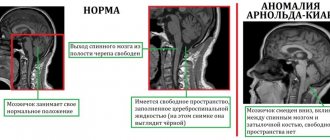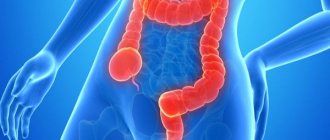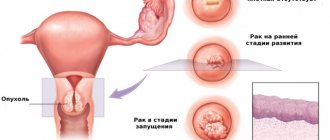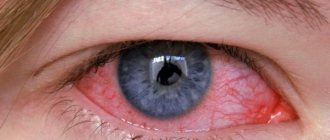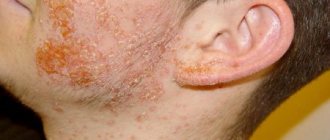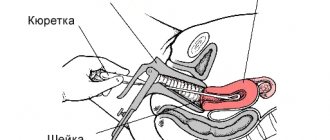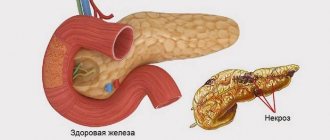Mumps (mumps) is a vaccine-preventable viral infection that is transmitted and affects only humans. Although the salivary glands (especially the parotid glands on the sides of the cheeks) are known to be involved during mumps infection, many other organ systems can also be affected by the viral infection. There is no specific treatment for mumps, but the illness has a short duration (seven to ten days) and resolves spontaneously. Before the introduction of mumps immunoprophylaxis, the highest prevalence of new cases of mumps was observed in late winter to early spring.
Medical historians believe that documentation of clinical illness associated with mumps dates back to Greco-Roman times. The first effective vaccine against mumps was introduced in 1948 and was used from 1950-1978. Unfortunately, this vaccine strain had limited long-term immune memory effectiveness. The current strain used worldwide provides 88% long-term immunity. The current immunization schedule for mumps recommends vaccination at 12-15 months of age and a booster at 4-6 years of age. Mumps vaccine is usually given as part of the combination attenuated live mumps-rubella-measles vaccine ( MMR ), which also provides protection against measles and rubella.
What causes mumps? Is mumps contagious? How is mumps transmitted?
The mumps virus is a single strand of RNA housed inside a double-layered envelope that gives the virus its characteristic immune signature. Only one type of mumps virus has been demonstrated to exist (unlike the many types of viruses that can cause the common cold).
Mumps virus under a microscope
Mumps is more contagious than influenza and rubella (German measles). But it is less contagious than measles and chickenpox (chickenpox). It is transmitted only from person to person. Mumps spreads quickly among members living in close proximity. The virus most often spreads directly from one person to another through respiratory droplets released during a sneeze or cough. Less commonly, respiratory droplets can land on pillows, clothing, and then be transmitted through hand-to-mouth contact after touching such objects. Animals cannot get or spread mumps.
Treatment of mumps
At the moment, there is no specific treatment for mumps aimed at the causative virus. Treatment is carried out using symptomatic therapy aimed at individual symptoms of the disease.
For high fever and pain, anti-inflammatory and antipyretic drugs are used: ibuprofen, paracetamol. Aspirin is not recommended for use in children. Since chewing causes pain, you need to prepare food in liquid or pureed form. You should avoid foods that can stimulate salivation, thereby increasing the load on the salivary glands and increasing pain. For example: sour, fried.
- Important: to combat intoxication, it is necessary to give the patient a large amount of fluid.
- To increase the body's resistance, restorative treatment with vitamins and immunostimulants is carried out.
- A circular bandage can be applied to the inflamed area; dry heat is necessary.
- Since the patient is contagious, quarantine is established. Household and household items, cutlery are disinfected with antiseptic preparations.
If abdominal pain and vomiting, drowsiness, severe headache combined with drowsiness, loss of consciousness, or convulsions occur, emergency medical attention is required.
What are the risk factors for contracting mumps?
- Failure to receive the full vaccine (two separate doses).
- Age: The greatest risk of contracting mumps is a child aged 2 to 12 years.
- Season: Mumps outbreaks are most likely to occur during the winter/spring season.
- Travel to high-risk regions of the world: Africa, the general Indian subcontinent and Southeast Asia. These areas have very low immunization rates.
- Weakened immune system: either due to illness (eg, HIV/AIDS, cancer) or medications (oral steroid use for more than two weeks, chemotherapy).
Is there a high risk of infertility?
It is widely believed that mumps is especially dangerous for boys: complications of this disease can lead to male infertility in the future. Orchitis, an inflammation of the testicle, actually develops in about 15% of boys, which can subsequently cause impaired spermatogenesis.
But it is not without reason that they say that fear has big eyes. Orchitis can be successfully treated, but time must not be wasted. Signs indicating that this complication is developing may appear on the 5-7th day from the moment of obvious manifestation of mumps (behind the ear “tumor”), or maybe after 2 weeks. These are: a “jump” in temperature (up to 39–40°), severe pain in the testicle, radiating to the groin and lumbosacral region, swelling of the scrotum, redness of the skin on it.
Mumps also affects girls, especially if they get sick between the ages of 9 and 12: the complication manifests itself as inflammation of the ovaries and can lead to menstrual irregularities and even infertility. Symptoms are fever, pain in the lower abdomen or lower back.
What are the signs and symptoms of mumps in children and adults?
Nonspecific symptoms such as fever, headaches, muscle pain (myalgia), decreased appetite and malaise occur within the first 48 hours after mumps. A characteristic enlargement of the gland appears on the third day of illness.
The parotid gland is swollen and painful when touched, and ear pain may also occur. Parotid gland swelling can last up to 10 days, and adults usually experience more severe symptoms than children. About 95% of people who develop mumps symptoms will have painful inflammation of the parotid glands.
Interestingly, about 15-20% of mumps cases have no clinical signs of infection, and 50% of patients will only experience nonspecific respiratory symptoms rather than the characteristic description above. Adults are more likely to experience these subclinical or respiratory symptoms only, while children aged 2 to 9 years are more likely to experience the classic presentation of mumps with a parotid tumor.
Course of the disease
Mumps disease has a long incubation period (the time from infection to the onset of the first symptoms), which usually takes from 12 to 19 days. During this period, the virus actively multiplies in the tissues of the salivary glands. Possible warning signs of the disease: lack of appetite, weakness, malaise, headache.
From the moment the incubation period ends, the active period of the disease begins. Important: a person infected with mumps can infect another person even before the onset of symptoms and up to 7-8 days after the first signs appear.
During this period, mumps disease has pronounced symptoms. Swelling of the parotid area, inflammation, high (up to 40 degrees) temperature, intoxication gradually subside by 5-7 days, sometimes later. On average, the disease from onset to recovery lasts a month or a little more.
After recovery, persistent lifelong immunity to the disease remains.
How do medical professionals diagnose mumps?
The diagnosis of mumps is primarily a clinical examination. Laboratory tests are usually performed to confirm clinical suspicions. The purpose of these laboratory studies is to exclude other viruses that may give a similar clinical presentation, as well as to exclude very rare similar manifestations of parotid gland enlargement (eg, salivary gland cancer, Sjögren's syndrome, IgG-4 related disease, sarcoidosis, adverse effects of thiazide diuretics, etc.).
How to treat?
There are no special drugs to treat mumps. The main thing is to keep the child in bed until the temperature drops to normal, this will help reduce the risk of complications.
The affected glands “love” heat, but only dry. So no warm compresses, wrap the patient’s neck with a warm but soft scarf.
The doctor also prescribes rinsing with antiseptics (a weak solution of potassium permanganate, furatsilin, chamomile infusion, etc.) - when the salivary gland becomes inflamed, the protective functions of saliva are reduced, and this increases the risk of developing stomatitis and fungal diseases of the oral cavity. Try to get your child to drink more fluids; it is important to quickly remove toxins from the body - products of viral breakdown. Tea with lemon, fruit juice, and table water are suitable. It is better to drink them through a straw - this will reduce pain when swallowing.
There is no need to persuade your child to eat anything, wait until the appetite returns. Try to feed more often, but little by little. And at first, food that does not need to be chewed - liquid soups, cereals, vegetable and fruit purees, meat or fish broken up in a blender, diluted in broths.
Who should not receive the MMR vaccine?
Some people should not receive the MMR vaccine. These include individuals with compromised immune systems (HIV/AIDS, cancer, individuals taking oral steroids for more than two weeks) or who are allergic to any component of the vaccine, including gelatin or neomycin. Daily use of inhaled steroids (such as those used to control certain lung diseases such as asthma, chronic obstructive pulmonary disease, etc.) is not a contraindication to the MMR vaccine. Patients with a mild illness (such as a cold) can safely receive the MMR vaccine. Conception should be avoided until at least 28 days after vaccination.
Numerous international studies have not demonstrated any cause-and-effect relationship between the MMR vaccine and the development of autism, refuting previous erroneous theories.
Photo: fernandozhiminaicela/Pixabay
Etiologist
Mumps only affects humans. It belongs to the genus Paramyxoviruses. When the disease occurs, the glandular and nervous tissues of the body become vulnerable. The virus survives well at low temperatures, so outbreaks occur during the cold season.
Etiology of mumps
You can become infected with the virus through airborne droplets, toys and breast milk. It does not live long in the external environment and dies from high temperatures and ultraviolet rays. The source of the disease is the infected person. Some people may not show symptoms of the virus, increasing the number of people infected.
What is the prognosis for mumps?
Mumps is generally a benign, self-limiting disease that provides lifelong immunity. Serious medical side effects are extremely rare; the more common complications (though still relatively rare) are listed above. Nonimmune women who are infected with mumps during the first trimester of pregnancy have an increased rate of miscarriages, but babies carried to term do not have a higher risk of developing birth defects.
Mumps is a disease with serious consequences.
The culprit of the disease
Mumps, aptly known by the common name mumps, is a disease whose consequences have a disastrous effect on the health of boys and men. This acute infectious disease is caused by a virus, first of all and always affecting the salivary glands to varying degrees, less often - glandular organs (testes and prostate gland, ovaries, lacrimal and mammary glands, thyroid gland (rarely), pancreas), sometimes the disease affects on the nervous system.
Mumps virus
The virus is stable in the external environment; it can live for several days at a temperature of 20 degrees Celsius, and at lower temperatures - up to 8 months. The virus enters the environment (air, household items) with droplets of saliva from a sick person or a virus carrier. It enters the body by inhalation or through the mucous membrane of the mouth, from where it enters the blood and circulates throughout all organs, remaining in the body much longer than the influenza virus. The virus is found in saliva, blood, urine, brain matter and cerebrospinal fluid, and breast milk. It is impossible to predict which organ the mumps virus will choose to attack. It is equally impossible to stop its attack with antibiotics or other chemotherapy drugs.
Forms of the disease
Mumps is a disease whose effects do not appear immediately. The disease can have several forms. These are: typical mumps (mumps) - with damage to the salivary glands (primarily the parotid glands - first the gland swells on one side, and after two days on the other); glandular form - only the glandular organs (parotid, submandibular and others) are affected in isolation; in the nervous form - isolated damage only to the central nervous system (CNS) - manifests itself in the form of serous meningitis, meningoencephalitis; combined form - damage to the central nervous system and glands (serous meningitis and mumps); atypical form - the symptoms characteristic of the disease are erased or cannot be determined.
Symptoms of mumps
At the beginning, the disease manifests itself as headache, loss of appetite, fatigue, and fever. Then - pain in the ears, which intensifies when chewing. At the end of the first or second day of the disease, swelling of the parotid glands is noted - a characteristic diagnostic sign of mumps. The mucous membrane at the site of the excretory duct of the parotid gland thickens and turns red. The tumor grows for several days. Then the submandibular lymph nodes become inflamed, which is marked by swelling of the submandibular region. In severe cases of the disease, the subcutaneous tissue of the face and neck swells, and the sublingual lymph node becomes inflamed (swelling under the tongue). Sometimes swollen, inflamed salivary glands put pressure on the facial nerve, which leads to non-closure of the palpebral fissure (“hare’s eye”). Swelling of the salivary glands usually lasts a week, rarely two or three. On days 5-9 from the onset of the disease, pancreatitis may develop - acute abdominal pain, nausea or vomiting, flatulence, and undigested food in the stool. Symptoms of pancreatitis disappear after 10 days. Sometimes, usually on the 6th day, in boys the virus leads to orchitis - inflammation of the testicles, first one and then the other.
Consequences
Mumps, the consequences of which can manifest itself in the form of hearing loss, damage to the heart, central nervous system and liver, is quite dangerous. There is an opinion among experts that mumps in girls can lead to infertility, but so far this is only an assumption. The consequences of mumps in boys (almost every three who have had mumps) appear during puberty in the form of orchitis. Usually this disease goes away without consequences, but some cases cause infertility. But for men who have had mumps in adulthood, the consequences of the disease, expressed in infertility, are more frequent.
Treatment
No special treatment is prescribed for mumps. What is needed is bed rest, general warmth for the patient and dry heat for the inflamed salivary glands, hunger in the first day or two, then a gentle diet in the form of crushed food (only boiled or stewed dishes). It is necessary to drink plenty of fluids, oral hygiene in the form of rinsing with a solution of the drug "Furacilin", "Tantum Verde", taking tablets "Lisobakt", "Imudon", "Stomatidin". The use of herbal medicine is drinking decoctions of medicinal plants. For example, tea is brewed from equal parts of raspberry, currant and lingonberry leaves. Wheatgrass rhizomes are useful - 1 tbsp. l. raw materials are poured with 1.5 cups of boiling water and boiled over low heat for 10 minutes. Drink the strained warm broth 3 times a day, 1 tbsp. l. A pleasant and useful collection for inhalation: take 2 tbsp. l. sage leaf and black elderberry and linden flowers, add 1 tbsp. dill seeds and peppermint leaf. Grind the mixture and brew with 2 liters of boiling water. Bend over the brewed mixture and breathe in the steam (once a day for 30 minutes).
Prevention
To prevent your child from contracting mumps, a disease whose consequences may affect his or her future, get a preventive vaccination against mumps in a timely manner. Vaccination of children who have not had mumps is carried out once as prescribed by a doctor at the age of one. Children who have not had mumps and who have not been vaccinated and who have had contact with a sick person are urgently vaccinated. This is necessary to alleviate the course of the disease. Let us repeat, mumps is a disease, the consequences of which can and must be prevented.
Diagnostics
To make a diagnosis in an uncomplicated form of pathology, it is enough to correctly assess the totality of available signs .
If the disease has a complicated course, a number of additional diagnostic studies will be required, such as a general blood and urine test, examination of saliva, and other secretory secretions.
In addition, the child is prescribed an immunofluorescence test to determine the type of pathogen.
Classification
The course of the disease can be different; it depends, first of all, on the state of the child’s immune system.
In some children, the pathology manifests itself with severe symptoms and has a severe course, while in others it is as painless . Depending on the area of damage and the severity of characteristic symptoms, pathologists distinguish several varieties.
| Damage area | Severity |
Depending on the area of damage, the following types are distinguished:
| Depending on the severity of the characteristic symptoms, the disease can have the following forms:
|
What consequences can arise and why is mumps dangerous for boys?
If mumps poses no danger to girls, boys, in most cases, may remain infertile. In addition to the salivary glands, the virus can attack the gonads. Orchitis will begin - inflammation and swelling of one or both testicles. This is dangerous because swelling damages tissue and injures blood vessels.
When to see a doctor
In most cases, mumps can be easily determined at home. Those who are sick need bed rest for two weeks (until the disease goes away completely) in cases without complications. But only a doctor can determine the patient’s regimen and prescribe the correct treatment to avoid complications. An infectious disease specialist should examine the patient.
He may recommend hospitalization in a hospital, where the necessary intensive treatment will be provided, taking into account the type and severity of the disease. It is impossible to kill the mumps virus; an effective method for this in medicine has not yet been invented. Patients are prescribed treatment to prevent the development of complications and reduce the impact of symptoms on the patient’s well-being.
The course of treatment lasts 2 weeks and is divided into several types:
- regimen and patient care;
- dietary nutrition;
- prescription of medications.
Bed rest is necessary for all forms of mumps, even without complications. It is observed until the acute symptoms disappear. Physical and emotional stress is prohibited. You can't get too cold. When caring for a patient, do not forget about safety measures to prevent the spread of the disease to others.
The complication of mumps requires immediate consultation with a doctor. It manifests itself with nausea, vomiting and pain in the upper abdomen. In extreme cases, the central nervous system is affected, causing cerebral edema. Symptoms of meningitis: convulsions, agitation, headache, loss of consciousness, vomiting.
Possible complications
The disease is not as terrible in its manifestations as in its consequences and serious complications. Paramyxovirus, which causes the development of mumps, can affect various organs and at the same time cause severe complications. The main ones:
- Pathologies of the male glands: aspermia, orchitis, testicular atrophy, complete infertility.
- Diabetes.
- Deafness due to infection of the middle ear by a virus.
- Pathologies of the central nervous system.
- Serous meningitis or meningoencephalitis.
- Inflammatory process in the thyroid gland.
- Pancreatitis and general disorders of the pancreas.
